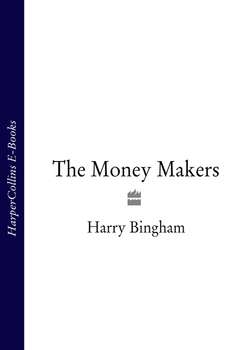Читать книгу The Money Makers - Harry Bingham - Страница 25
3
ОглавлениеMcAllister’s ten days were up, but he was busy. Matthew watched his office like a hawk. McAllister was either in meetings or on the phone all day. Anxiety continued to chew at Matthew’s stomach. Get off the phone. Give me the answer.
Eventually, at four o’clock, McAllister caught Matthew’s glance and signalled him over. Matthew hurried across and was about to take his seat when McAllister asked him to close the door. That door was never closed. It was never closed, except, if rumour was true, when McAllister fired people. Matthew shut the door and sat down awkwardly.
‘I’ve three things to say to you, Matt. First, you did a fine job on that piece of work the other day. Too many traders, not just in this bank but everywhere, think that their market feel is so good that they don’t need to understand the facts. That’s bullshit. Every good trader has market feel, but a fine trader is a salesman, an economist and a diplomat as well. I think you understand that and I like it.
‘Secondly, we are going to give you a job here. You can finish your present assignment and then we’ll send you off to New York for the training programme. If you flunk that, or if your teachers there think you need to complete your degree, then we’ll chuck you out and that’s that. But I don’t see why you should fail. I think you will make a good trader.
‘The third thing is this. My good friend, Bob Landau, who runs the trading floor at Coburg’s, tells me that your brother is expected to do well in the corporate finance department there. They’ve never heard of you, and it’s pretty clear that you don’t know much about them. There are rules which matter a lot in banks and they matter most of all on the trading floor. At some point most traders break them. They don’t record a trade when they should do. They exceed a position limit. They tell a lie or conceal the truth from a client. I regret that this game is what it is. But I know that paying young men what we pay them and motivating them as we motivate them will encourage mistakes. What I tell traders in this firm is this: you can make one mistake and usually we will forgive it. But if you make two, it suggests you’re not capable of learning from your errors and we don’t want you here. You, Matthew, have used up your mistake.’
